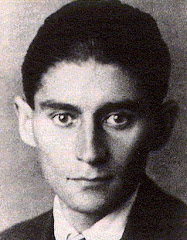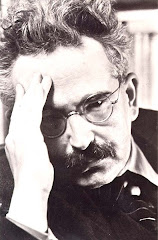Just as God spoke and worlds came into being, so, when we speak, realities are born. Thus, the word of God is at once the word which comes out of the divine mouth and the word which goes into it. The word of God is at once the word emanating from the Holy One’s lips and the word ascending from our own lips about God. Revelation is not, then, God’s pure unconcealment before us, but the shared effort of God and humanity to undress each other. Just as lovers, in the midst of interpenetration, forget whose arms and legs are whose, being “flesh of one flesh,” so with God, it is impossible to know when one of us speaks, whether it is we or the Master of the Universe who says, “Love the stranger, for you were strangers in a strange land.” Even when Nietzsche told us that “God is dead,” it was hard not to hear this as the Riddle of Riddle’s own beatific statement, a revision of the first commandment, “I am the Lord your God who took you out of Egypt.”
Humans are the elements of God’s subconscious, while God is the mind who orchestrates and contextualizes our chaotic, finite, lives. Some of us are God’s passions, some the voice of divine reason. Some are the Merciful One’s suppressed drives; others are the Judge’s deepest anxieties. God passes through moods, and this passage means, oftentimes, our death. But God always remembers, at some point or other, willingly or unwillingly, knowingly or unknowingly, God’s former selves. When God does, we are resurrected. Just as when we go back to our childhood home or see an ancient photograph or gaze upon a once favorite toy and excavate memories from these shards, so does the Almighty return to the deity’s former lives every time God studies the Torah!
God’s textual abilities have not always helped us. None of the puns in God’s imagination was strong enough to put an end to the gas chambers. And sometimes God is so busy teasing out the ten thousandth meaning of a phrase that he forgets that its first meaning is “there is famine.” Still, for all God’s incapacities, we must be grateful that the book he reads is the Book of Life and that we, mere fragments of the All-Knowing, provide the horizon of meanings from which the divine draws.





